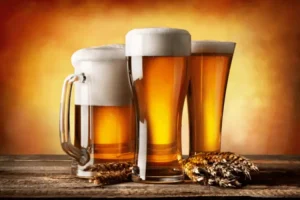Does Alcohol Thin Your Blood? Risks of Alcohol and Blood Thinners

Alcohol can thin the blood for several hours after consumption, with effects varying based on individual metabolism, alcohol quantity and other factors. Heavy alcohol drinking while taking clopidogrel can cause ulcers and irritate the stomach. Anticoagulants can protect individuals who have a condition or disease that could cause them to have any of the above clot-related events. People who said they drink a lot of liquor also tended to binge drink, which counteracts any helpful effects you might get from alcohol in moderation. Another study found that, compared to non-drinkers, people who drank more than 3 ounces of liquor per week had a 53% higher risk of DVT.
nosebleeds or minor cuts that take longer than usual to stop bleeding
- A 2017 review explains that alcohol consumption has complex and varying effects on platelets, which are small blood cells that initiate the coagulation cascade, causing blood to clot.
- Aspirin can also increase the risk of internal bleeding when taken with alcohol.
- People should speak with a healthcare professional about consuming alcohol and taking blood-thinning medications safely.
- Research indicates that women may have a higher mortality risk from ALD compared to men, highlighting the importance of early detection and intervention.
- Of course, healthcare professionals are here to assist and support you along the way.
Having the restraint to consume only moderate amounts of alcohol may be challenging for some individuals. It can also limit your kidneys’ ability to excrete broken-down toxins or drugs, such as your prescribed blood thinner. This can lead to the same harmful effect of excessive anticoagulation. According to the Dietary Guidelines for Americans, published by the U.S.
- Always consult with a healthcare professional before making any changes to your alcohol consumption while on blood thinners.
- Combining these drugs with antiplatelet or anticoagulant drugs may also increase your bleeding chance.
- Several herbs interfere with the anticlotting abilities of blood thinners.
- For those on blood thinners, it’s crucial to consult with a healthcare provider to understand personal risks and receive individualized advice on alcohol consumption.
Do not sell my personal information Privacy Policy and Terms of Use
Drinking too much increases blood clotting problems through several mechanisms. When the body’s ability to clot is reduced internal vessels may begin bleeding inside the body. When enough liver damage has been endured there is a risk of bleeding and shock. Blood thinners increase the risk of excessive bleeding, particularly for at risk individuals or people undergoing surgery.
- Blood clots can increase your risk of having a heart attack, stroke, or getting other kinds of heart disease.
- One of the anticlotting processes uses a type of blood protein called antithrombin.
- This is doubly dangerous, as you are more likely to have an injury while intoxicated and are at higher risk for severe bleeding.
- When you take a blood thinner, follow the directions carefully.
Can people drink alcohol while taking blood thinners?
Some alcohol use may still be permissible; however, consultation with a doctor is essential to determine the risks for specific situations. The blood-thinning effect of Lovenox is enhanced while using alcohol, increasing the risk of bleeding. You should check with your doctor before mixing Lovenox and alcohol. This can help them determine if something is causing an interaction that could lead to serious bleeding.
Blood thinners are medicines that help your blood flow smoothly through your veins and arteries. Blood clots can increase your risk of having a heart attack, stroke, or getting other kinds of heart disease. Your doctor may prescribe a blood thinner to help prevent heart attacks and strokes blood thinners and alcohol if you are at risk. Some people take medications to prevent the blood from clotting or slow the clotting process. They may refer to them as blood thinners, anticoagulants, or antiplatelet drugs. A doctor may prescribe these medications to reduce a person’s risk of heart attack and stroke.

While some alcohol may be safe, specific situations should be discussed with a doctor. A person needs to speak with a doctor about taking blood thinners safely. Always consult your healthcare provider to ensure the information displayed on this page applies to your personal circumstances. Some healthcare providers recommend against alcohol ingestion completely while taking warfarin.

For instance, some may cause prolonged bleeding, while others may interact with certain foods or medications. Light to moderate alcohol use can make your blood thinner, while heavy alcohol use actually increases the likelihood of forming blood clots. While moderate https://ecosoberhouse.com/ alcohol use does have a blood-thinning effect, using alcohol specifically to thin your blood or have a healthier heart is not recommended. While alcohol may have blood thinning effects, it may also increase the risk of cardiovascular conditions and blood clots.
Does Alcohol Thin Your Blood? Risks of Alcohol and Blood Thinners

Various foods, herbs, and medications can interfere with blood thinners. These substances can make the drug more or less effective than your dosage would suggest. They’ll also help you learn how to minimize the risks of taking a blood thinner so you can reap the rewards without worry. Then, instead of helping, the clots become harmful because they keep blood from flowing through your veins and arteries as it should. And that can lead to some serious stuff, like stroke, heart attack or pulmonary embolism.







